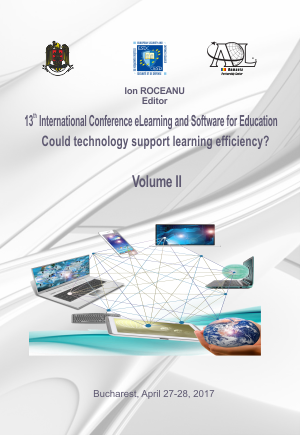VIRTUAL LABORATORY FOR TRAINING IN THE FIELD OF DIGITAL SIGNAL PROCESSING
VIRTUAL LABORATORY FOR TRAINING IN THE FIELD OF DIGITAL SIGNAL PROCESSING
Author(s): Tsvetozar Georgiev, Georgi Krastev, Elitsa IBRYAMOVASubject(s): Social Sciences
Published by: Carol I National Defence University Publishing House
Keywords: Virtual Laboratory; Training; Digital Signal Processing.
Summary/Abstract: Modern training in digital signal processing requires specialized laboratories with proper equipment. The construction and maintenance of such laboratories is practically difficult task. There is need of expensive equipment and the ability to flexibly configurable different devices. Consumers should be able to build different systems and to have full control over the devices. From this perspective, the traditional laboratories built with a fixed number of devices with limited options and certain software does not provide the necessary training flexibility. However, before conducting practical classes and research, students need to build relevant experimental arrangement. This requires time and, on the other hand, erroneous connections are possible, which can lead to equipment damage. Proposed solutions for virtual labs focus on reducing the cost of equipment. This report presents an approach to building a virtual laboratory for digital signal processing based on MATLAB and input-output module NI USB-6008, as well as specialized software that provides user interface and system performance in real time. The NI USB-6008 module provides ample opportunities. Using suitable control program developed in the software environments like Microsoft Visual Studio, MATLAB, LabVIEW, etc. the values of input signals can be read and output values can be set. NI USB-6008 is one of the data acquisition devices that are supported by MATLAB Data Acquisition Toolbox. It is used to create a link between MATLAB and NI USB-6008. The operation of the real time data acquisition system using MATLAB can be realized as M-file, as a scheme in SIMULINK, operating in real time using the Real-Time Workshop or as a self-executable application, compiled with MATLAB Compiler (MCC). The first method is suitable for large sampling time rates, because the time for single execution of control programs in small rates can't be considered negligible compared to the time rate. Therefore, the management programs are implemented as executable files generated by MCC. The main advantage of such applications is that they operate fully autonomously. The proposed approach of virtual laboratory combines advantages of the traditional physical laboratories as well as those based on virtual platforms.
Journal: Conference proceedings of »eLearning and Software for Education« (eLSE)
- Issue Year: 13/2017
- Issue No: 02
- Page Range: 84-89
- Page Count: 6
- Language: English

